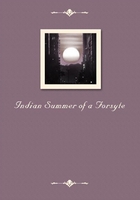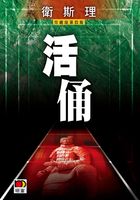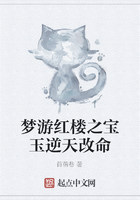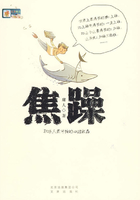The Huguenots flew to arms to avenge their brethren who had fallen, and the fourth civil war began. The Duke of Anjou laid siege to their strongest fortress, La Rochelle, but failed to take it, and on his election as King of Poland (1573) a treaty was concluded according to which the Huguenots were allowed free exercise of their religion. Alarge number of French politicians were at last growing tired of a struggle which was costing their country so dearly, and were anxious to conclude peace even though it were necessary to yield to the demands of the Huguenots. At the head of this party stood some of the most powerful nobles of France including the Duc d'Alencon, and when on the death of Charles IX. the Duke of Anjou succeeded as Henry III.
(1575-89) his sympathies were entirely with the party of the moderates as against the extremists of both sides. By the terms of the Peace of Beaulieu (1576) the Huguenots were assured of complete freedom except in Paris and at the French Court, and of full civil rights, and as a guarantee of good faith they were continued in possession of their fortresses.
Indignant at such concessions the Catholic party formed the League[9]
with the young Duke of Guise at its head. Henry III., finding that it was impossible to oppose this combination with any hope of success, determined to control it by becoming himself its leader. The concessions made to the Huguenots were recalled (1577), and the fifth civil war broke out. This was brought to an end by the Peace of Poitiers (1577). The Huguenot party, under the King of Navarre and the young Prince de Conde, continued to make headway against the League, and sought to strengthen themselves by an alliance with England and the Netherlands.
The question of the succession to the French throne became serious for both parties. Henry III. was childless, and on the death of the heir-apparent, his brother the Duke of Anjou (Alencon, 1584), the succession devolved apparently on Henry King of Navarre, but as he was a Calvinist the Catholics were unwilling to recognise him. The League declared Cardinal de Bourbon son of the Duke of Vendome as the lawful heir to the French throne, though many of its out and out supporters were in favour of the Duke of Guise. An attempt was made to get the approval of the Pope for the League and its policy, but both George XIII. and Sixtus V. were not inclined to support its pretensions. At the earnest request of Spain the latter, however, issued a constitution in 1585, by which he declared that Henry of Navarre and the Prince de Conde, as notorious heretics excommunicated by the Church, had forfeited all claim to the throne of France. Henry of Navarre lodged a solemn protest in Rome, and he appealed to the Parliament of Paris, which refused to approve of the publication of the papal document. Both sides had recourse once more to arms, and the Huguenots under the leadership of Henry of Navarre were victorious in the battle of Coutras (1587). The League however continued the struggle, captured some of the principal cities such as Lyons, Orleans, and Bourges, while Henry III. favoured both parties in turn.
Overawed by the successful exploits of the Duke of Guise he pledged himself to put down the Huguenots, and the French people were called upon by royal proclamation to swear that they would never accept a heretic as their king (1588).
But in his heart Henry III. favoured the cause of the King of Navarre, if for no other reason because he wished to escape from the dictatorship of the Duke of Guise. In 1588 he procured the murder of the two greatest leaders of the League, Henry Duke of Guise and his brother Louis the Cardinal-archbishop of Lyons. This outrage drew upon him the wrath of the League and of the great body of the French Catholics. Charles de Lorraine, brother of the murdered Duke of Guise, put himself at the head of the king's enemies. Sixtus V. issued a strong condemnation of the murder of the cardinal-archbishop, and the Sorbonne declared that the nation no longer owed any allegiance to the king. The war was renewed vigorously on both sides, the League being supported by Philip II. of Spain and its opponents by Protestant troops from Germany and Switzerland. While the combined forces of Henry III. and of the King of Navarre were besieging Paris, Henry III.
was assassinated (1589).
Thereupon Henry of Navarre had himself proclaimed King of France under the title of Henry IV., but the League refused to recognise his claims and put forward instead the aged Cardinal de Bourbon, then a prisoner in the hands of the King of Navarre. The Cardinal also was proclaimed king (Charles X.). Spain, too, refused to acknowledge Henry IV., and assisted the League with both money and soldiers. The Popes, Sixtus V.
Gregory VIX. and Clement VIII. adopted an attitude of great reserve.
While they were not inclined to support the demands of the League in their entirety they were unshaken in their reserve to acknowledge no heretic as king of France. Henry IV., though supported by many of the moderate Catholics (/Les Politiques/), began to recognise that as a Calvinist he could never hope for peaceful possession of the French throne. He determined, therefore, to yield to the entreaties of his most powerful supporters and to make his submission to the Catholic Church. In July 1593 he read a public recantation in the Church of St.
Denis, and was absolved conditionally from the censures he had incurred. The following year he made his formal entrance into Paris, where he was welcomed by the people, and acknowledged as lawful king of France by the Sorbonne. Having pledged himself to accept the decrees of the Council of Trent, to abide by the terms of the Concordat of 1516, and to rear his heir and successor as a Catholic he was reconciled to the Holy See. The League dissolved itself in a short time, and so far as Catholics were concerned peace was restored to France.















